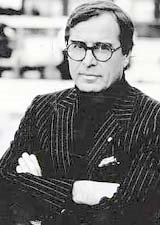It's Northern hemisphere summer, and folks there are revving their internal engines for long trips to exotic climes. Books are part of the holiday experience for most, and the newspapers traditionally have their lists of holiday reads.
Sam Leith in the Telegraph reckons that reading on holiday is a material pleasure as well as an intellectual one, he reckons:
A good book returns from a good holiday battered and discoloured, with sand in odd crevices, with mysterious stains and pages missing, with mild spinal injuries and a new lover or two. Just like its owner. ... One hardback will have a semi-translucent, coconut-smelling thumb-print on a right-hand page. A paperback will be a fat, crinkly, chlorine-damaged wad after it joined you in the pool when the kids upset your lilo. Another paperback, left splayed for an hour in full sun so that the heat melted the glue in its spine, is shedding pages into your bag. The book becomes a souvenir of the pleasure you took in it and the place where you read it.
But what should a holiday read be like? Something light and frothy? The things we've always meant to get round to reading? A big classic novel (which is what Leith himself favours).
The
Guardian asked authors (
here and
here) which books they have taken with them on journeys. JG Ballard writes nostalgically about a a copy of the Los Angeles Yellow Pages which he took from his suite at the Beverly Hills Hilton, and which he says transformed his holiday. And Paul Theroux recounts his experiences reading Naipaul's
A House for Mr. Biswas on board a ship between Singapore and Borneo in 1970, in the company of what seemed
"like a cast from a Maugham novel".
My happiest reading memory was reading Theroux's
O-Zone in a hammock on Tioman. I'd travelled there alone, and was staying at the wonderful but basic
Nazri's Place with nothing to do all day but read and snorkel. (Leave food out of the equation: there was basically only a choice between freshly caught mackerel and tuna each meal time!)
Absorbing fiction about a future America, rigidly divided by social class, seemed to go very well with stunning island scenery. Don't ask me why!
Mind you, I think you can go too far with dystopian fiction on a beach ... one of the suggestions for beach reading for the summer of 2007 at the end of Leith's article is
The Road by Cormac McCarthy. The most bleakly desolate novel ... perhaps of all time ... has no place in anyone's beach bag, I'd say.
It's fun trying to choose book to fit holiday location and Sam Jordison on the
Guardian blog
writes about trying to find the perfect match.
I read Colin McPhee's
A House in Bali, the first time I stayed in Ubud and it was a magical match. McPhee's book was written in the 1930's. The musicologist/composer heard some recordings of Balinese gamelan and travelled to the island to learn study it. The book gives an insight not only into the music but also a fascinating glimpse into into Balinese society. My biggest thrill though was in meeting one of the people McPhee had written about all those years before - a dance teacher who was still training performers. (And it was very special to me years later to hear the piece based on gamelan that McPhee composed, played by the Malaysian Philharmonic.)
What was your best holiday reading experience?








